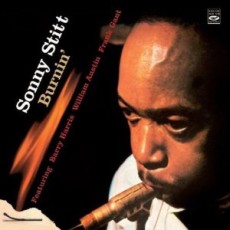
Daily Dose Of Jazz…
Sonny Stitt was born Edward Stitt on February 2, 1924 in Boston, Massachusetts but grew up in Saginaw, Michigan in a musical family and was given a strong musical background as a child. His father was a college music professor, his mother a piano teacher and his brother was a classically trained pianist.
Meeting Charlie Parker in 1943, the two found their styles extraordinarily similar, due in part to Stitt’s emulation. Considered on of Parker’s greatest disciples he was also influenced by Lester Young, both helping Sonny develop his own style, which would later influence John Coltrane.
Nicknamed the “Lone Wolf” by jazz critic Dan Morgenstern, attributing his relentless touring and devotion to jazz, Stitt recorded over 100 albums in his lifetime. His earliest recordings were with Stan Getz in 1945, he played in swing bands like Tiny Bradshaw’s big band and replaced Charlie Parker in Dizzy’s band, and sat alongside bop pioneers Dexter Gordon and Gene Ammons in Billy Eckstine’s big band in the forties.
Sonny began to develop a far more distinctive sound on tenor playing with other bop musicians Bud Powell and Eddie “Lockjaw” Davis. In the fifties he teamed up with Thad Jones and Chick Corea and experimented with Afro Cuban jazz. He joined Miles Davis briefly in 1960 but was fired for an excessive drinking habit he developed.
Stitt went on to record a number of albums with his long-time friend Gene Ammons, regarded as some of their best work of dueling partnerships; then ventured into soul jazz with Booker Ervin, recorded with Ellington alumnus Paul Gonsalves and was a regular at Ronnie Scott’s in London during the sixties.
By the 1970s, Sonny slowed his recording output slightly, experimenting with an electric saxophone called the “Variphone” heard on the album “Just The Way It Was – Live At The Left Bank” in ’71 and returning to the alto to record the classic “Tune Up” in 1972. Sonny joined the Giants Of Jazz along with Art Blakey, Kai Winding, Dizzy Gillespie, Thelonious Monk and Al McKibbon, and continued to record throughout the seventies.
A fiery tenor with enthusiastic solos, he was equally effective with blues and ballads, whether he was playing the alto, tenor or baritone. Sadness fell upon the jazz world on July 22, 1982 when Sonny Stitt passed away in Washington, D.C. after suffering a heart attack.
More Posts: saxophone


